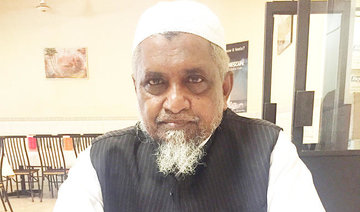BRUSSELS: The EU proposes cutting back contacts with Myanmar’s top generals in a first step to increase sanctions over an army offensive that has driven Rohingya Muslims out of the country, according to a draft document seen by Reuters.
The bloc “will suspend invitations to the commander-in-chief of the Myanmar/Burma armed forces and other senior military officers,” read the draft for agreement by EU foreign ministers meeting next Monday.
The document, to be discussed further by envoys from the 28 EU states on Tuesday, said the EU “may consider further measures” depending on developments on the ground “but also stands ready to respond accordingly to positive developments.”
The document confirmed support for an existing EU embargo on arms and equipment that can be used for “internal repression.” The US is also considering new targeted sanctions on Myanmar.
Meanwhile, at least 14 Rohingya refugees, most of them children, drowned and scores more were missing after their overloaded boat capsized in the latest tragedy to strike those fleeing violence in Myanmar.
Authorities in Bangladesh said the boat was carrying between 60 and 100 people when it overturned and sank in rough seas on Sunday night.
The bodies of 11 children, two women and a man were washed up on Shah Porir Dwip island in Bangladesh and border guards pulled 13 survivors from the sea, but the fate of the others remains unknown.
Alif Jukhar, a Rohingya refugee who has long lived in Bangladesh, lost nine relatives in the disaster including his mother and father.
“Yesterday, I spoke to my parents on the phone and they told me they would arrive in Shah Porir Dwip tomorrow,” he told AFP as he used his bare hands to bury their bodies.
Shortly afterward, overcome with grief, he collapsed screaming in the middle of the cemetery.
More than half-a-million Rohingya have left Myanmar since militant raids on police posts on Aug. 25 prompted a brutal military backlash against the Muslim minority that the UN has said could amount to ethnic cleansing.
Survivor Sayed Hossain wept as he watched the body of his two-year-old son being taken away to the local cemetery for burial.
The International Organization for Migration (IOM) said some children on board had lost their entire families in the disaster and were now alone in a strange country.
The government of Buddhist-majority Myanmar refuses to recognize the Rohingya as a distinct ethnic group and considers them illegal migrants from Bangladesh.
The Myanmar government has said its “clearance operations” against the militants ended in early September and people had no reason to flee. But in recent days the government has reported large numbers of Muslims preparing to leave, with more than 17,000 people in one area alone.




























